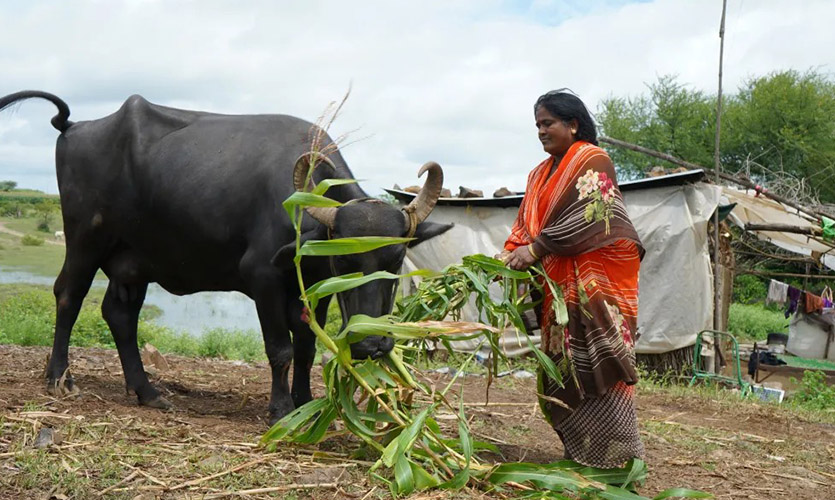A series of reports on climate change, carried by Context, have revealed that India’s women farmers forfeit their gold to survive the adverse effects of climate change that has led to crop failure. Considered a security asset by women, extreme heat has forced them to cash their gold in order to afford basic necessities.
As per sources cited by the publication, women sell it through banks to avoid corruption by private money lenders who offer higher interest rates. Gold, which is considered an important asset in all Indian households, is sold by these women to cover costs of livestock rearing, animal fodder and children’s education.
In the rural areas of Maharashtra, most families are heavily dependent on their livestock as the global temperature has risen by more than 1.2ºC (2.2ºF), resulting in the loss of their crops. Without the crops residue that is used to feed their animals, they have to opt for purchasing fodder. This is unsustainable for the farmers as at this rate they will run out of assets like gold quicker than imagined.
One of the reports cites farmer Hirabai Kalel from Jambhulni, who remembers being laden with gold as a new bride, sporting anklets, arm bands and a waist belt. The rise in global temperature has forced her to cash in her safety net. In a conversation with the media platform, Kalel said, “If I had not sold my gold, we would have lost both our land and animals.” Reportedly, she now wears dozens of green glass bangles on her arms. “What is left with me is my life and this sari I wear. But I don’t regret selling my jewellery. My animals are more dear to me than my gold,” she asserted.
At the busy counters of Mann Deshi Bank, located in the town of Mhaswad, more than 700 women have pawned their gold for cash. As noted by the bank, there is a difference of more than 200 loans between the number of gold loans taken last year and this year. The bank, in order to support women, has been working with nonprofits to empower them.
Vanita Pise, a board member of the bank addressing the combatting techniques of women from these rural areas, said, “There is not a single day when we don’t have a gold loan applicant and we get 10 applicants on average every day. Most loans are for fodder and for children’s education.”
The problem is likely to worsen as global temperatures continue to rise. A 2021 study by Rahul Todmal, assistant professor in the Geography department at the College of Arts, Science and Commerce in Baramati, Maharashtra, found the state to be one of the most vulnerable as climate change worsens. He talked at length about how the climate change crisis has already created a water crisis, and said that shifts in agricultural practices can assist the farmers to tackle the situation with more resilience.
“Climate change has already created a water crisis in these parts and we are aggravating it by growing more cash crops and less of the drought-resistant varieties that could give more resilient food and fodder supplies,” said Todmal.
According to the Ministry of Fisheries, Animal Husbandry and Dairying, the government is working constantly to improve the quality of fodder crop seeds, build more feed processing plants, and create awareness about livestock insurance.
Each country is challenged by the repercussions of climate change, for example, Pakistan’s farmers are facing drought, and are unable to combat the ruthless challenges now presented by devastating floods.
As the global temperature rises, the agricultural industry across the globe is facing a similar kind of hindrance, and it requires unconditional support from the governments and nonprofit organisations to combat the crisis.










